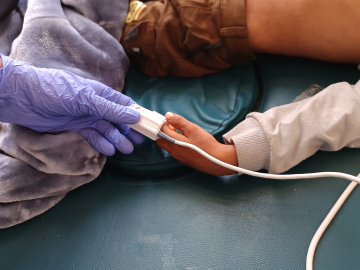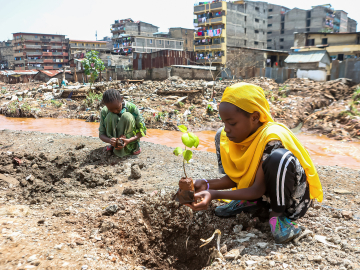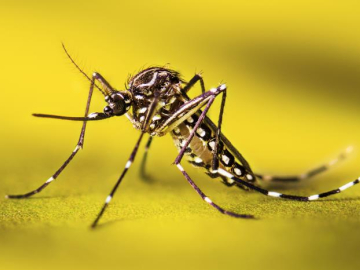Africa Prepares for “the Worst”
One of the biggest unknowns in the COVID-19 pandemic: What will happen in Africa?
Home to 1.2 billion people, Africa has seen the novel coronavirus quickly spread to 37 countries and more than 700 cases. Will African countries be able to effectively detect and isolate new cases, or will the virus spread rapidly through metropolises like Lagos, Kinshasa, and Cairo and overwhelm health systems?
WHO Director-General Tedros Adhanom Ghebreyesus delivered a stark warning to the continent on Thursday: "Africa should wake up, my continent should wake up," Tedros said, adding it should prepare for “the worst,” according to the BBC.
Travelers, mostly from European countries, have brought the SARS-CoV-2 virus to the continent repeatedly. Just over a week ago, the novel virus had been detected in only 5 countries.
“I think we can characterize the status in Africa now as being in a really rapid evolution of this epidemic. We’ve been adding several countries a day, and also adding quite a significant number of cases a day,” said WHO’s regional director for Africa Matshidiso Moeti. In most countries, cases have been tracked to visitors from outside the country; however, community transmission appears to be happening in at least 4 countries: Algeria, South Africa, Senegal, and Burkina Faso.
2 months ago, the fear was that asymptomatic transmission was already underway and massive numbers of sick people were only weeks from appearing in health care facilities. However, that vision hasn’t yet been realized.
“That doesn’t make me complacent at all,” Moeti said in a phone interview from her office in Brazzaville, Republic of the Congo. “It makes me recognize that the window of opportunity that we had is narrowing very quickly. And we really have to work very hard with countries to help them to even further improve, particularly their surveillance systems.”
At the beginning of the outbreak, just 2 labs in the WHO Africa region (for the most part sub-Saharan Africa) could confirm SARS-CoV-2 infection. Now, labs in 40 countries can. That’s an important step because it helps countries isolate those infected and take other steps like contact tracing.
Being able to process tests in the lab is one thing; having sufficient numbers of test kits is another. “As is the case everywhere I would say, testing capabilities, meaning test kits, are a challenge,” Moeti says.
Among other concerns for Moeti are how the high prevalence of HIV among young people and malnutrition among under-5 children could alter COVID-19 outcomes.
Quickly adding to response capabilities in low- and middle-income countries in Africa and elsewhere is the goal of a $40 million commitment from Bloomberg Philanthropies that was announced on Tuesday. (Michael R. Bloomberg is a benefactor of the Johns Hopkins Bloomberg School of Public Health, which publishes Global Health NOW.)
“Speed is really important. Time is lives in a pandemic like this,” said Tom Frieden, former US CDC director. Frieden is president and CEO of Resolve to Save Lives, an initiative of Vital Strategies, which is partnering WHO and the Bloomberg Philanthropies. “The sooner we can get training, the sooner we can get information systems, the sooner we can get laboratory networks working—the more likely we are to find it faster, stop it sooner, and prevent it wherever possible.”
The initiative will support rapid response teams that will work with country partners on infection prevention and detection, training of frontline health care workers, and the development of lab networks, among other priorities.
The project will also provide rapid response funding. “A little bit of money fast can make an enormous difference in being able to provide services to communities, more rapidly detect and respond to cases, or protect health care workers,” Frieden said.
A conversation with an African colleague emphasized the urgency for Frieden. “They just tested a couple dozen patients with severe ailments, and most of them had this,” said Frieden, who declined to identify the country. “So, there is the real risk that this will explode.”
“I know there's been a theory that Africa might be somehow protected by warm climate. That's a theory. It's not something that can be counted on,” Frieden said.
For the latest coronavirus news, visit here.
For the latest, most reliable COVID-19 insights from some of the world’s most respected global health experts, see Global Health NOW’s COVID-19 Expert Reality Check.
Join the tens of thousands of subscribers who rely on Global Health NOW summaries and exclusive articles for the latest public health news. Sign up for our free weekday newsletter, and please share the link with friends and colleagues: https://www.globalhealthnow.org/subscribe
A health worker conducts drive-through novel coronavirus testing in Johannesburg yesterday. Photo: Marco Longari/AFP via Getty Images





